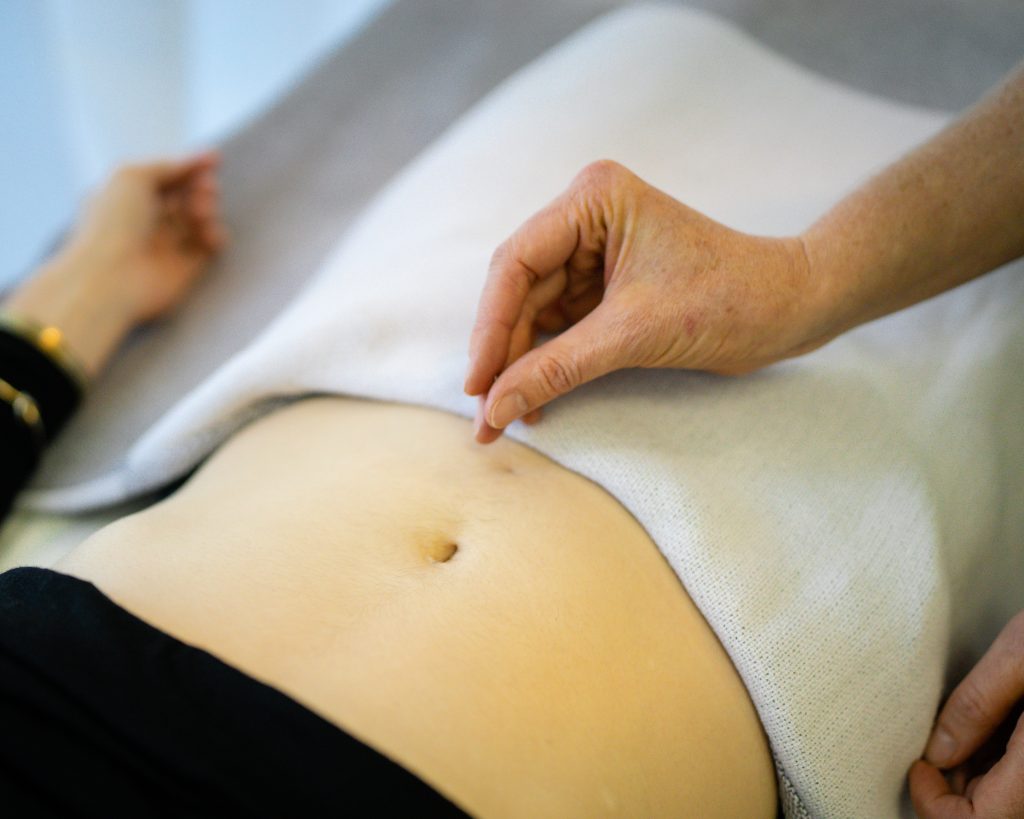
How does acupuncture work?
This is a question most of my patients ask me, and something I set out to answer when I began my studies in Chinese medicine. Acupuncture seems to stimulate the vagus nerve, encouraging parasympathetic nervous system activation – the “rest and digest” response, a state in which repair, relaxation and healing can happen.
New research is discovering that acupuncture can promote the release of feel-good endorphins, which can explain the feeling of being “reset” and grounded that my patients describe as that special post-acupuncture glow!
Acupuncture points are areas within the body’s tissues with greater concentration of sensory fibres, capillaries, lymphatic vessels and mast cells. Gentle needle penetration into these neurovascular nodes causes complex electrical and chemical messages to be conducted through the body via the nervous system, endocrine, lymphatic and immune systems, to restore homeostasis.
If you want a more traditional perspective, acupuncture points are located on meridian channels – areas of the body that correspond to different nerve innervation and fascial pathways. Inserting hair-thin needles along these channels is thought to improve the circulation of blood, lymph and energy to these areas, which stimulates healing. This concept of bioelectricity has long been understood by the Chinese as qi or life-force energy, and its flow is essential to activate the body’s natural healing processes and restore balance. Acupuncture is not merely a placebo. The “magic” is simply your body’s physiological response to the acupuncture.
What does acupuncture feel like?
In an acupuncture treatment, these fine, single-use needles are gently inserted into points on the body – often on the arms, legs, abdomen and back. My patients are surprised at how painless acupuncture can be.
After a session with me, patients feel empowered, with the strategies they need to address their health, and potent herbal medicines to work from the inside out. They also feel relaxed and rejuvenated, or “reset” and ready to face the world again.
Acupuncture is generally painless, as the needles are very fine – most people feel some warmth, heaviness or a slight radiating sensation, followed by a feeling of relaxation while the needles are retained for 20 minutes. The course of therapy can vary, from one to two sessions for a new acute condition, regular weekly or fortnightly sessions while a chronic issue is resolved, to monthly maintenance or preventative care.
Other therapies can involve moxibustion, in which penetrating heat from a burning Chinese herb is used to warm acupoints to tonify or promote the flow of qi, or cupping, the application of warmed glass cups to certain areas of the body (typically the back) to increase circulation, release pain or blockages and clear toxins.
Simple but potent lifestyle changes, including diet, exercise, and stress-management techniques, will be discussed, allowing you to take charge of your own wellbeing, and maintain good health.
What can acupuncture support?
Because acupuncture works to stimulate your body’s self-healing and repair process, it can be used to support a wide range of health conditions. My special interest is women’s health, and I support women with:
- period issues – pain, pms / pmdd, irregular cycles
- PCOS
- endometriosis, adenomyosis
- fibroids
- fertility (for women and men)
- IVF support
- pregnancy, preparing for birth, postpartum care
- perimenopause and hormonal imbalances
I also work with people experiencing:
- stress, anxiety, low energy
- insomnia
- digestive issues
- headaches and migraines
- pain and musculoskeletal issues
- allergies and immune support
- acne, eczema and rosacea



